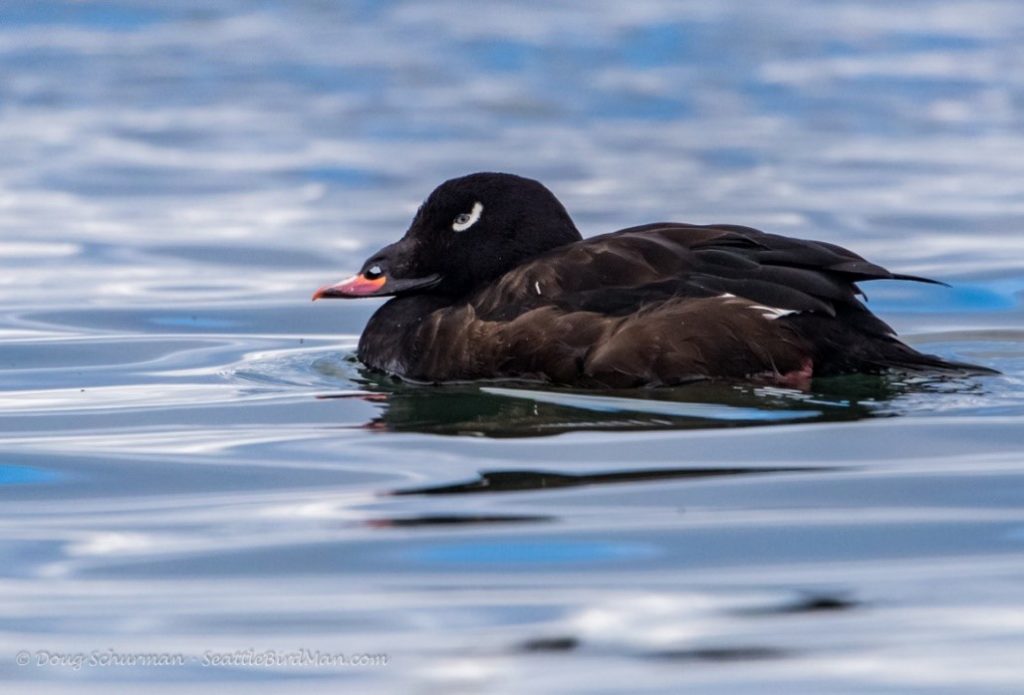Posting on behalf of Toby Ross of the Seattle Audubon Society

Are seabirds in the southern Salish Sea increasing or decreasing in numbers? Which species are changing their range? Help us find out.
The Puget Sound Seabird Survey (PSSS) is a community and citizen science project managed by Seattle Audubon that empowers volunteer birdwatchers to gather valuable data on wintering seabird populations across the southern Salish Sea. Together, our team creates a snapshot of seabird density and abundance on more than 2,400 acres of nearshore saltwater habitat.
This season we will be expanding the project, yet again, this time north to the Canadian border and the San Juan Islands. We received funding from the Environmental Protection Agency’s National Estuary Program through the Washington Dept. of Fish & Wildlife [and the Dept. of Natural Resources, via the Habitat Strategic Initiative] to add 15-30 new survey sites, develop an oil spill plan and train volunteers on how to react to a spill.
You can contribute to vital seabird science by joining the 12th season of Seattle Audubon’s PSSS. We are now recruiting enthusiastic and dedicated volunteers to help us monitor the status of our local wintering seabirds. The project is open to birders of all levels, although we’re always in need of birders confident with seabird ID. Why don’t you take this short seabird ID quiz to gauge your skill level? If you’re unsure about your abilities we’ll team you up with more knowledgeable surveyors, everyone is welcome. Training on survey methodology is provided and will take place at a location near you
The first seabird survey of the season will take place on October 6, 2018. Volunteers should be available on the first Saturday of each month, October through April, to conduct a 30-minute seabird survey. Learn more at www.seabirdsurvey.org and email Toby Ross, Science Manager if you would like more information or to take part.
Did you know: Including this project, the Habitat Strategic Initiative has funded several projects dealing with oil spill preparedness, including some prioritized by the Habitat advisory team and some prioritized for local funding by the San Juan Local Integrating Organization. Oil spills pose a substantial risk to Puget Sound’s species and habitat as well as the economy and public health, necessitating Sound-wide collaboration on efforts including a focus on prevention as well as preparedness and response.

